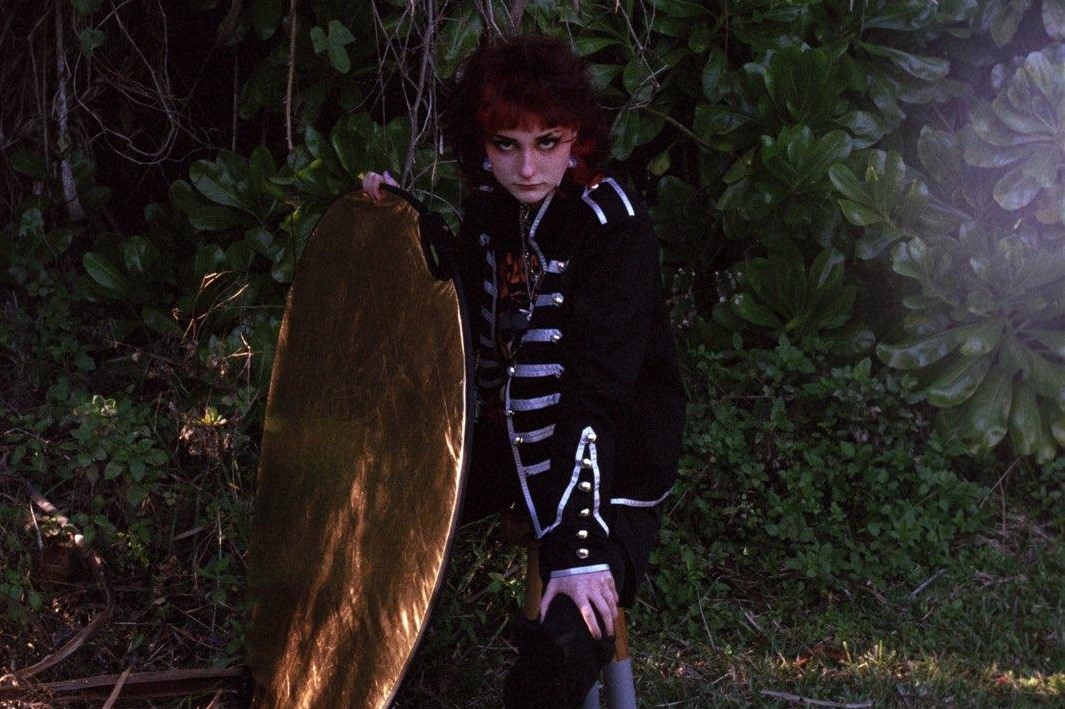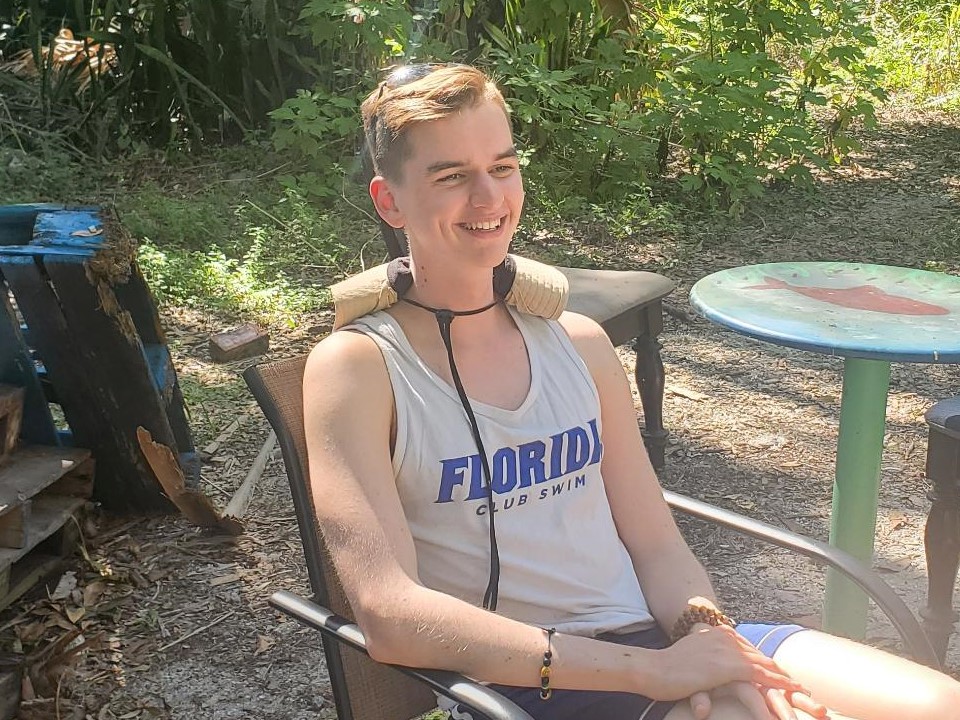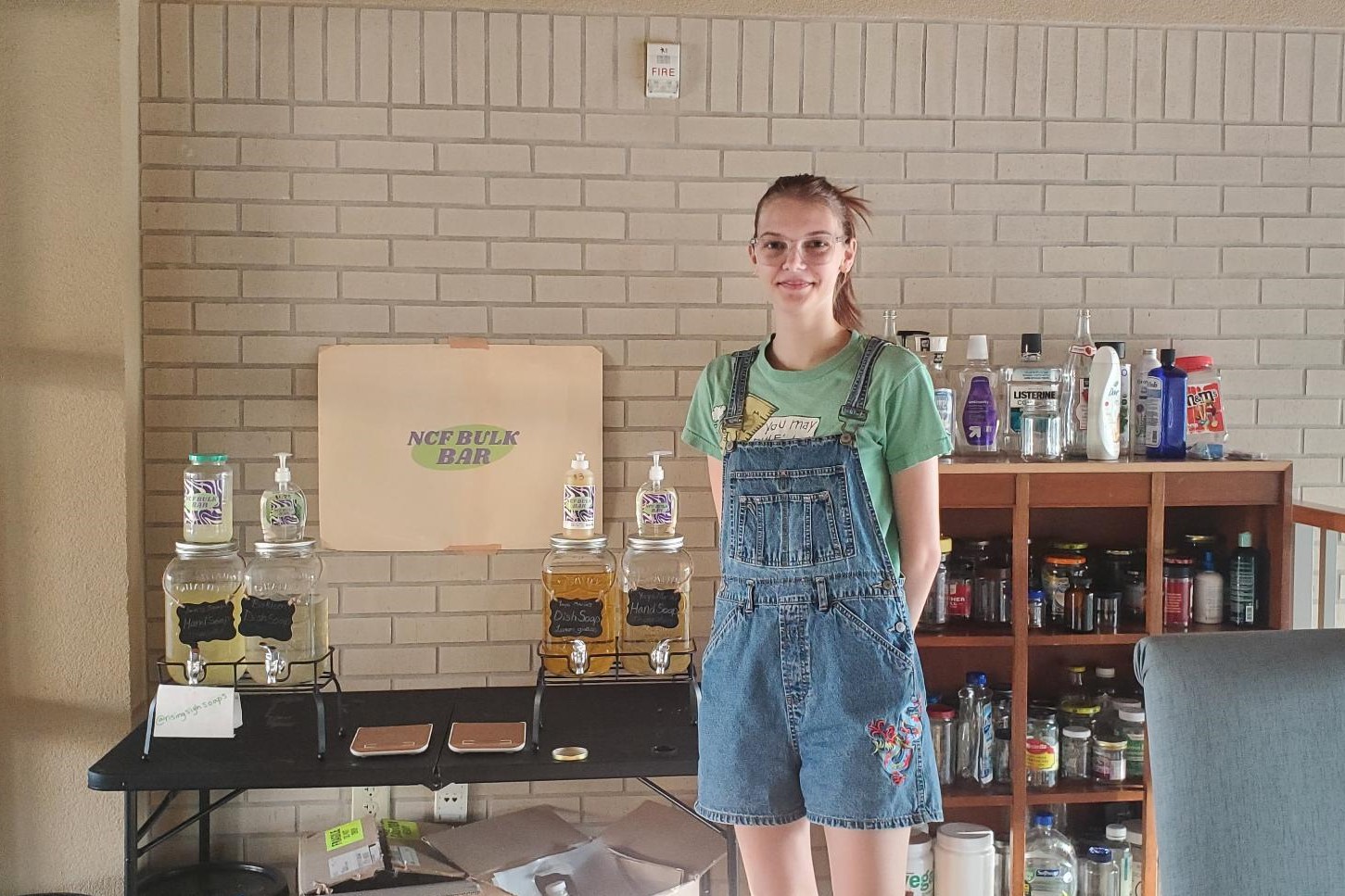I watch friends and faculty dissipate, creating a ghost town out of the college that once seemed like the promised land to my depressed teenage self. Many in my cohort, having arrived Fall 2021, have either already abandoned ship, or plan to do so when the year closes out. But for myself and many others, transferring really doesn’t feel like an option—because for us, our presumed last year, our thesis year, starts in Fall 2023. Thesising is already the most stressful thing a New College student has to do in order to graduate—but now, it completely feels like the odds are stacked against us in our journey to graduation. Rather than simply thinking about the exciting possibility of graduating soon or beginning our thesis process, our minds are mostly occupied with whether we will have a thesis committee or sponsor by the time fall semester rolls around. After the Apr. 26 Board of Trustees (BOT) meeting, where five faculty members were denied tenure and Chair of the Faculty Matthew Lepinski dramatically stepped down from his position, everything seems a little more uncertain.
“Literally everyone is up for grabs [or] just getting pulled out of the school at any second,” second-year and Catalyst staff writer Chloe Rusek explained. “I don’t know who’s going to be on my [thesis] committee. I want a thesis, so I can get out of here, but I’m not going to have anyone to be on my committee, or at least not anyone that I know or have a connection with, which is completely against the purpose of the system in my mind.”
Rusek also wasn’t originally planning to thesis next year—her graduation was scheduled for Spring 2025. However, after the events of this semester, her advisor encouraged her to begin thesising early and look towards an earlier graduation date.
Rusek is also attempting to create her own Area of Concentration (AOC) in Digital Media Production, and wants to create a film for her thesis project, making things even more complicated when it comes to finding a sponsor and committee that understands that process. A few days after our interview, Rusek informed me that her sponsor had been fired by the administration.
“I have to pick people that fit into this weird puzzle, like, ‘What is incorporated in film?’” Rusek asked. “There’s the video aspect, there’s the art and writing aspects and then sound. I’m picking the weirdest, most random people.”

Alexandra “Lex” Gorman, a Psychology/Environmental Studies AOC, is in a very different situation. Gorman is going into her fifth year, after COVID-19 altered her original graduation plans. Gorman told me that she is also fearful of her committee leaving or being fired before she is able to have her baccalaureate or “bacc” exam.
“Obviously, I’m supportive of those who choose to leave this climate right now because the school is no longer a safe space for a lot of people,” Gorman expressed. “But it’s also really heartbreaking to see your future dissipate in more ways than one. Not only am I wondering how I’m going to feel safe emotionally or mentally here, but also academically, what does my future look like anymore?
“I’m really worried that my thesis sponsor or people in my committee or other people that can help me analyze my data or can help me with the research [will leave],” she continued. “Because already we’ve lost Lepinski, who was really going to be helpful with my data.”
Gorman’s thesis project will be a sort of “spiritual successor” to current thesis student Jessica Merkel’s project: creating the Bulk Bar. Gorman will be analyzing how “pro-environmental behaviors”—like using the Bulk Bar and thrift shopping—can “make you less climate anxious” and how some other behaviors like environmental protest “can make you more climate anxious.” And, like Rusek, her thesis committee will need to involve faculty from multiple different departments due to her joint AOC.
Braedan Stuart, a second-year Math AOC with a Religion secondary AOC, hasn’t had to change his plans much—but nevertheless expressed anxiety over the ever-changing campus climate.
“The Math Department is kind of tricky,” Stuart said. “I can see some of the professors were very, very close with Lepinski, and I think that it’s possible that they might follow his example.”
Stuart elaborated that, on the whole, he believes his potential committee is committed to the college. However, Stuart believes that he will have to drop his secondary AOC in Religion as faculty retire or leave.
Overall, Stuart is planning to do his thesis around mathematics research that he began during a research internship at Florida International University (FIU) last summer.
“In the event that that goes well, I can probably kind of spin that into a thesis, because mathematics research just kind of tends to work that way,” Stuart said.
He explained that one of the main draw factors to New College for him was the small class sizes and close faculty relationships. However, he added that, with the direction things are going with the board, he is concerned the New College he was originally drawn to will soon not exist.
Stuart expressed that one of the biggest things he’s concerned about is the population at the school decreasing.
“So many people are at least setting up plans to transfer,” Stuart explained. “It’s leaving a lot of holes in terms of admissions, and in terms of enrollment, that are going to really, really hurt the school’s budget no matter how hard they try to push that we’re not in a budget deficit. And it’s also going to leave a lot of spots open for them to really, really try to entice people who maybe don’t really appreciate the culture here, don’t appreciate the sort of academic environment.”
Stuart was also concerned about faculty stability, especially in Gender Studies and Political Science. While he personally has no interest in those subjects, he’s worried about how a lack of academic diversity will affect campus culture.
Stuart, Rusek and Gorman all expressed that if they were further from thesising, they probably would have transferred out by this point.
“I would literally have been gone immediately when this happened,” Rusek said.

Current third-year transfer student Michael Bolesh, who is studying Anthropology and Environmental Studies, brought up the unique circumstances faced by students that have already transferred once.
“I’m not transferring again, that would be horrible,” Bolesh said. “Transferring here was difficult enough during the pandemic. I don’t want to deal with that again.”
Bolesh also expressed concern over faculty leaving.
“If you love something, let it go,” Bolesh said. “I don’t know what the best situation is… I can’t see that perspective for someone to have job security and if they have a family—it may just be to leave Florida entirely or to leave New College.”
Bolesh is doing an ethno-botanical study into a self-sustaining farm/apothecary in Outaouais, a city in western Quebec. When asked how he feels about having a degree from New College, Bolesh said “Kind of iconic.”
“I feel like in a lot of places, especially outside the U.S.,[the perception of New College is] not going to change,” Bolesh said. “A lot of people won’t know about [NCF] unless they do more research.”
For Gorman, it’s 50/50.
“I was at New College during this pivotal time in its history, so someone sees a degree from New College from 2024, and they’re like, ‘Oh hey, that’s around when that shit was going down,’” Gorman said.
Gorman compared her situation to “driving around in a car that’s your friend’s, and they put a Trump sticker on it and everybody’s honking at you, and you have to be like, ‘Wait, no, that’s not, this isn’t my car, I didn’t do that!’”
Stuart says he is planning to go straight to graduate school, so he’s hoping his undergraduate degree won’t be the most relevant thing on his resume for very long.
Rusek, meanwhile, said she feels that it is “going to be kind of epic.”
“It’s going to be great because I think that’s the only reward of this, [making it through],” Rusek said proudly. “But what I’m thinking is also, if I have that degree and this school changes and turns into this super conservative school, are people going to think that I was here when it was the way it is now, and not the way it was?”
“No, I’m proud to have a New College degree,” Rusek concluded. “I think that’s something that especially in the heat of this moment, being able to say that I was here, I got through it somehow and I was even writing about it being in the Catalyst. I wasn’t really entrenched in it, so having that degree is kind of like a medal of honor in a way.”

